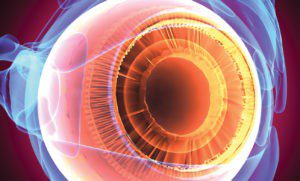Timothy Quinn, M.D. – Ophthalmology


Most cataracts are a normal part of aging and the risk increases as you get older. Dr. Quinn states that only 1% of his cataract surgeries are performed on patients below 60 years of age. This does not mean that those younger than 60 are exempt. 2The National Eye Institute lists four other types of cataract to include:
• Secondary cataract. Cataracts can form after surgery for other eye problems, such as glaucoma. Cataracts also can develop in people who have other health problems, such as diabetes. Cataracts are sometimes linked to steroid use.
• Traumatic cataract. Cataracts can develop after an eye injury, sometimes years later.
• Congenital cataract. Some babies are born with cataracts or develop them in childhood, often in both eyes. These cataracts may be so small that they do not affect vision. If they do, the lenses may need to be removed.
• Radiation cataract. Cataracts can develop after exposure to some types of radiation.
For most, cataracts develop slowly and don’t disrupt the vision early on. “In many cases, it is not noticed until after cataract surgery when there is a great increase in brightness and color,” explains Dr. Quinn. While there is no prevention for cataracts, Dr. Quinn mentions that certain personal behaviors have been shown to slow the progress of cataracts. These include wearing ultraviolet protection, avoiding tobacco products, and maintaining a healthy blood sugar.
Cataracts are commonly detected through a visual acuity test, a dilated eye exam, or through a measurement of pressure inside the eye. Dr. Quinn’s diagnostic tests also include a clinical exam that measures the opacity in the lens of the eye. He notes that grading its severity can be a challenge as it does not always correlate to symptoms. He points to the effectiveness of performing a wavefront analysis with machines like the iTracetm that are very instructive in measuring both the dimming and blurring effects of cataracts.
If prescription glasses aren’t enough to improve vision impairment caused by cataracts, the only effective treatment involves simple surgery where the clouded lens is removed and replaced with a clear artificial lens. “Fortunately, innovations in equipment and surgical technique have made the procedure safer and more effective for most patients,” says Dr. Quinn. “The vast majority of patients will do well with surgical techniques and lenses that are covered by their insurance. “
Cataracts can be easily diagnosed and visiting your eye doctor regularly is important in helping protect your eyes from further damage. The American Optometric Association recommends annual eye exams for everyone over the age of 60, and bi-annual exams for adults between 41-60 years to check for developing eye or vision problems.
Dr. Quinn’s offices are located in Naples at Physicians Regional – Collier Blvd, 8340 Collier Blvd, and Physicians Regional – Pine Ridge, 6101 Pine Ridge Rd. For more information or to schedule an appointment, please call 239-348-4221, or visit PhysiciansRegionalMedicalGroup.com
1 https://www.preventblindness.org/cataract-cases-reach-38-million-2032
2 https://nei.nih.gov/health/cataract/cataract_facts
 Southwest Florida's Health and Wellness Magazine Health and Wellness Articles
Southwest Florida's Health and Wellness Magazine Health and Wellness Articles
